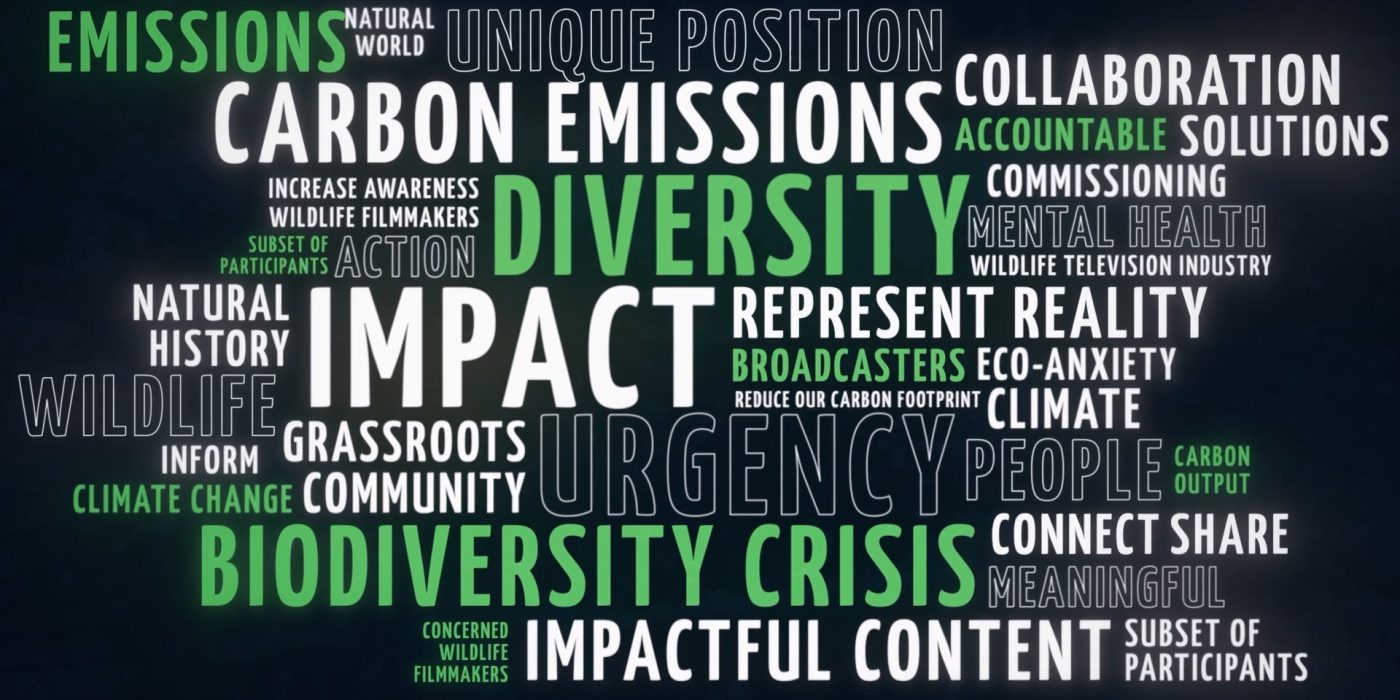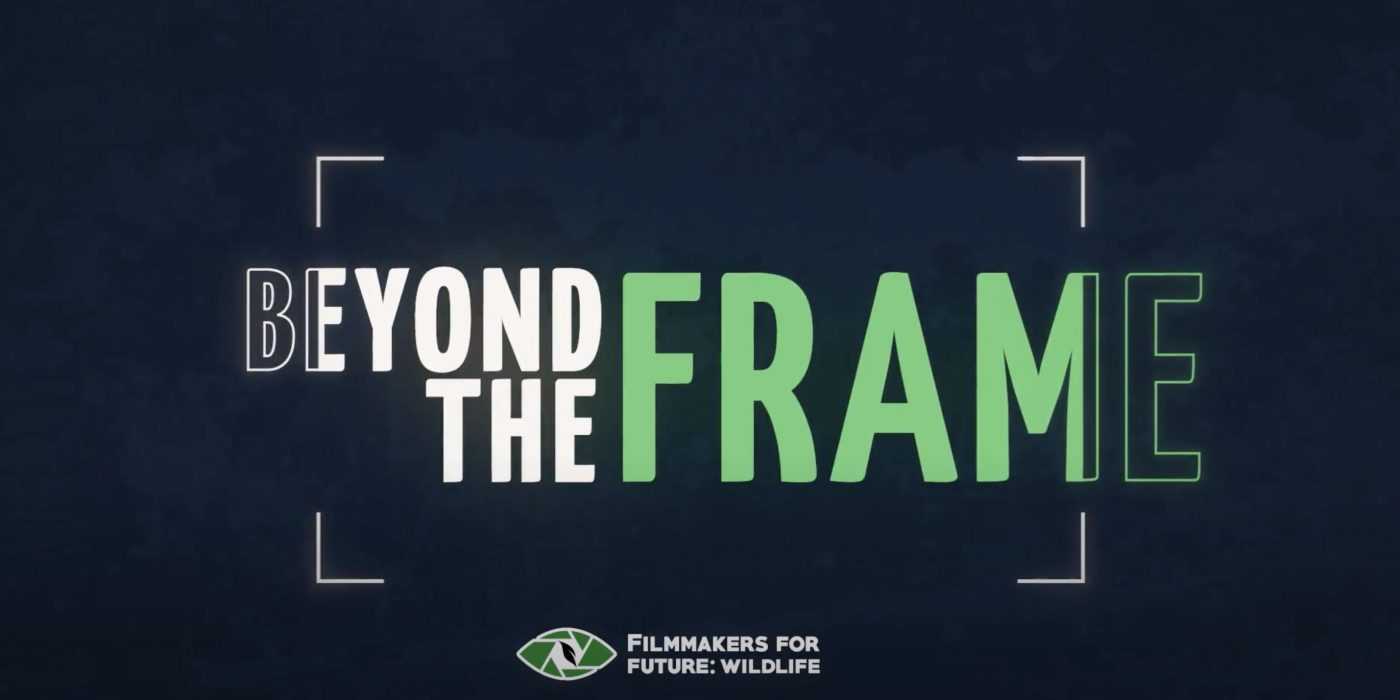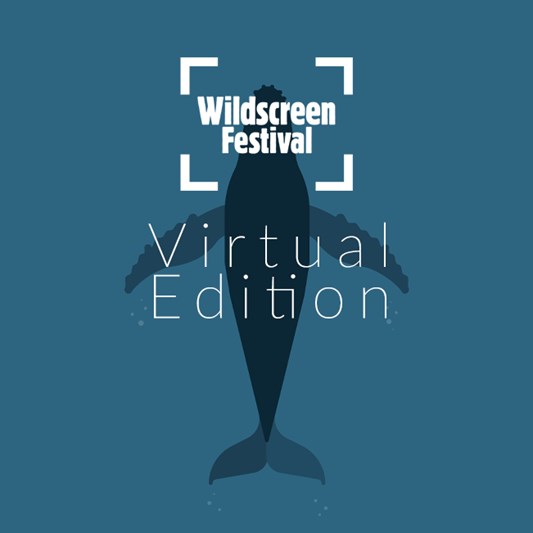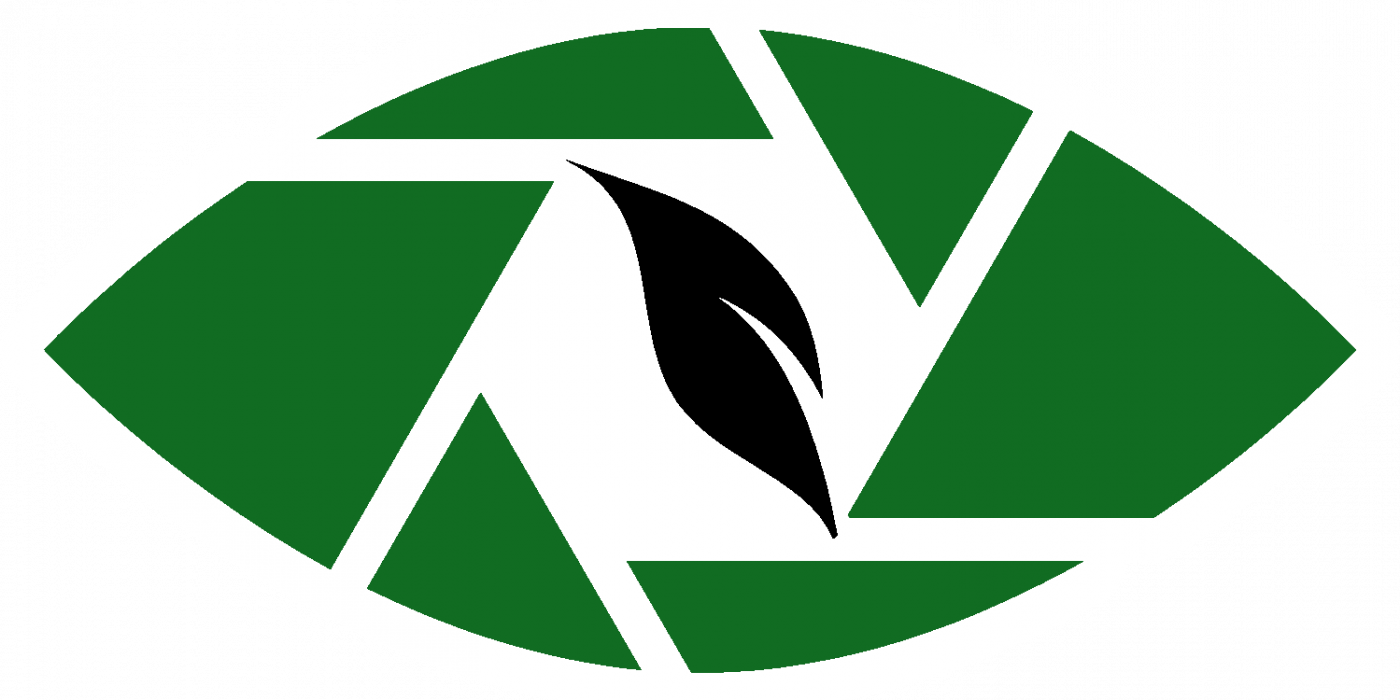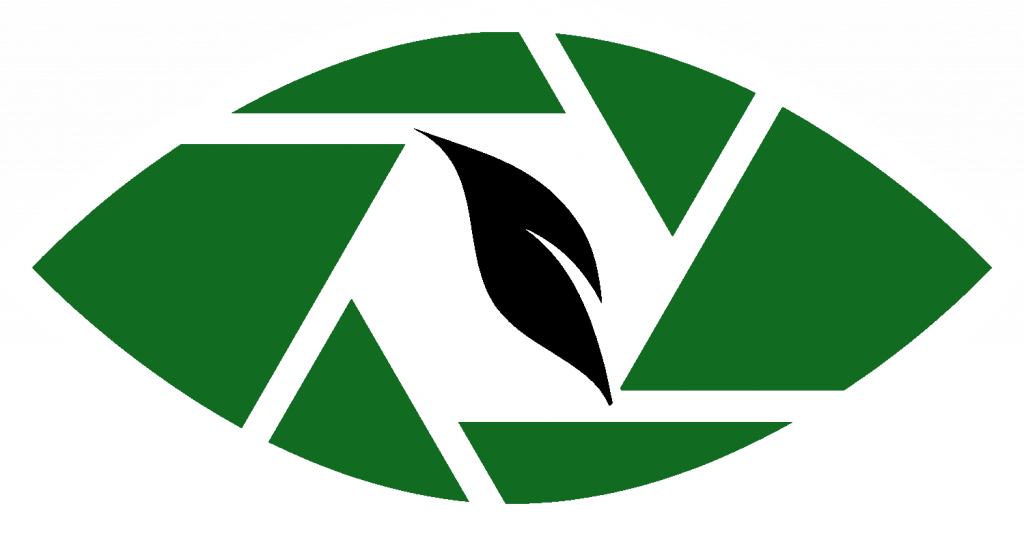Wildscreen is the largest natural history film festival in the world. This year, due to it being held online, it was also one of the most accessible. Held every two years, this was its first as a virtual event and the Festival team did a brilliant job. They managed the few inevitable technical hitches and delivered a multitude of masterclasses, screenings, live Q&As and unmissable high profile speakers, including Sir David Attenborough and Greta Thunberg discussing our current planetary crisis.
Here’s a round-up of some of the great environmental messages that came out of the sessions I was able to catch at this year’s festival.
The audience wants to know, “What can I do?”
A clear message was present -there is a need for urgency in relation to the climate and biodiversity crises and our audience is asking “What can I do?”. Something independent films have the editorial control to address, but often harder to do within the current constraints of the television industry. Most seemed to agree on the need to present positive examples and success stories to inspire and motivate. Can we make more of this kind of content? I hear some of the commissioning sessions sounded hopeful, and I’m keen to catch up on them.
Sir David’s advice – “Above all don’t waste”.
The conversation between Sir David Attenborough and activist Greta Thunberg raised some important issues including Sir David’s key piece of advice -don’t waste. As the natural history TV business booms, so does our environmental impact. We can find ourselves filming the same animals in the same places, sometimes even with the same crew and kit. One of FF:W’s aims is to help Bristol wildlife TV companies come together to collaborate on ways in which we might be able to reduce waste and duplication.
Our average carbon footprint is 61 tCo2e for one hour of television screened, which is equivalent to powering over 14 homes for a year. At the top end of the scale for wildlife TV, the largest footprint recorded (since 2012) for a big international series came in at over 400 tCo2e for one hour. Most of that was travel. That’s the equivalent of powering over 90 homes for a year. For one landmark wildlife series, we’re nearing the same footprint as the big budget feature films, at over 2,400 tCo2e. (Source: We are albert)
Sir David and Greta discussed how the right content has huge value and the ability to be part of the solution, but we also need to look at how we make our programmes. We make our living out of wildlife and wild places and yet international wildlife docs are the highest emitting genre of television. Covid’s broken the seal and showed us there are other ways of doing things. We hope to build a collaboration of companies here in Bristol to help work out where we can save on travel, energy and resources.
There were many other insightful takeaways from Sir David and Greta, of course. Wildscreen has now made their conversation available to the public. You can watch it here.
Everything’s Changed
Director Tom Musthill hosted an excellent panel discussion with DOP/Producer John Aitchison, Series Producer Verity White, Head of BBC Studios Science unit Andrew Cohen & PD Ashwika Kapur.
“Everything has changed since Wildscreen 2018. A global pandemic has left economies in meltdown while global climate change has caused wildfires on every continent. Trump has left the Paris Agreement and China’s committed to Net Zero. Greta, ExtinctionRebellion and Black Lives Matter have all dominated the news….So what should our roles be in this rapidly changing world?”
This was an honest and open discussion about the challenges and the opportunities which this new world presents for natural history content production. We as an industry have always justified our travel to deliver important stories from the natural world which can of course have huge value in the fight against climate change and biodiversity loss. But there is a growing discomfort felt by many in the industry that we give a false impression of the state of the natural world, and also by the nature of our business, mainly through multiple flights, how we’re also contributing to the problem. Offsetting is one thing, but the results needed will not be achieved quickly enough by this method alone. More discussions are needed about what can and can’t be justified and how we might streamline our processes and reduce our emissions in the first place.
The discussion received a lot of positive feedback from the audience both in the live chat and on social media. Jason Peters, Wildife film news via twitter: “This was an important discussion. We’re thrilled that so many filmmakers are onboard with telling the truth about the true state of the natural world.”
There were so many other great sessions on offer, I wasn’t able to attend all of them but here are a few key message from those I did:
An interesting session on Impact Campaigns asked “How can we make films that bring about real change? How can we use films to support it? And what’s the point of having an impact campaign if it doesn’t result in tangible change?” A conversation between Dave Allen, Joanna Natagesara, Franny Armstrong and Natalie Cash. At FF:W we’re learning about the new role of Impact Producing and how it might be incorporated within the wildlife TV industry, not just for independent films.
Sky’s CEO Jeremy Darroch in Conversation with Steve Backshall: “Businesses need to think how they can replenish as well as take” -SKY setting a great example of what broadcasters can do which I’m sure we could learn from here in Bristol.
James Cameron: Deep-Sea Explorer and Filmmaker, in conversation with Orla Doherty from BBC Studios: “We’ve been takers for too long, we need to be caretakers”
Perhaps one of the most striking things this year was the fact that the newly created “Sustainable Panda Award” for 2020 wasn’t allocated at the closing ceremony.
“The award recognises the production that best uses sustainable practices to reduce the environmental damage across the entirety of a production. Each production entered into the awards will need to outline the measures taken..” We don’t know the backstory to this but it gives a clear message and encouragement for us all to do better.
What other sessions did you catch and what did you find most interesting, surprising or encouraging this year? We’ve started up a new thread on our FF:W forum and would love to hear your thoughts, or you can add your comments below.
For those with a pass almost all of the content is now available to view on the website and the networking platform is also staying open until 20th of November.
Congratulations to all the award winners and to the festival team for pulling off the first ever virtual Wildscreen.
Kristina Turner,
Assistant Producer
FF:W Co-founder

